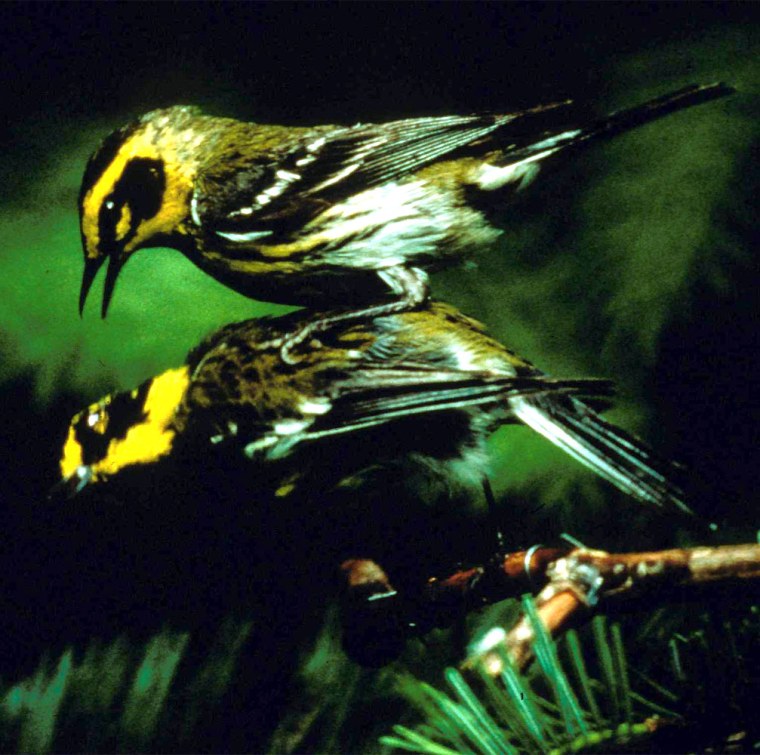Hormone-fueled songbirds are steadily forcing out a rival species in North America's Northwestern fir forests and threatening the more timid warblers with extinction, U.S. researchers said on Tuesday.
They said high levels of testosterone may explain the aggressiveness of the Townsend's warbler, which has been steadily displacing its more timid sister species, the hermit warbler, for thousands of years.
"The hermits have slowly been pushed out of Alaska and British Columbia, and now they are being pushed out of Washington," said Luke Butler, a biologist at the University of Washington.
"They are running out of places to go."
The Townsend's warbler outshines the smaller, less-flashy hermit warbler on several levels. It has dramatic yellow and black streaks, compared to the darker, less striking plumage of the related hermit warbler.
Tests showed the Townsend's males have higher levels of male hormones, notably testosterone.
Writing in Biology Letters, a journal of Britain's Royal Society, Butler and co-author Noah Owen-Ashley also said the Townsend males seem to be stealing away hermit warbler females, especially in less-desirable habitat.
"In low-quality habitat, Townsend's males are more able to attract females than hermits are," Butler said in a statement.
In Washington and Oregon, the researchers found hybrid zones where the birds have mixed plumage. Blood tests show they have the higher hormone levels typical of the Townsend's species.
"Many of these are presumably the result of hybrid matings between the 'tough-guy' Townsend's and the females of the 'wimpy' hermit species," Butler said.
